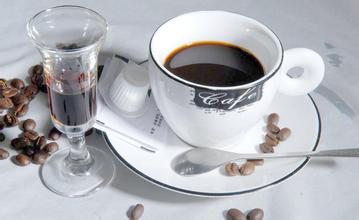Introduction to the Flavor characteristics of Indonesian Coffee in Kahayang Gan Manor Coffee Manor
This coffee was discovered because local workers were forbidden to drink coffee by the stingy Dutch planters at that time. In order to obtain this magical fruit that they had worked hard to grow, they had to find it in the excrement of civet cats. After washing and grinding, they made it into world-class coffee, which was then discovered by the Dutch and became more expensive. Bali, Indonesia's main tourist destination, is often famous for its golden coffee in tourist brochures. In fact, this is the special selection of Indonesian Mandheling coffee, also known as Golden Mandheling. Sumatra, probably free of disease, produces one of the finest coffees in the world, smooth and mellow, heavier in taste and slightly longer in aftertaste than Java, perhaps less delicate than Java, but more ferocious. Buy can recognize the golden butterfly trademark.
There are also plantations in Bali that have been turned into resorts, such as Munduk Moding Plantation, which has been turned into a luxury resort with spa. The resort is close to Bali Central Lake and Munduk Mountain Station, the nearby hills are covered with forests, coffee trees and rice, with charming surroundings and rooms with local characteristics. Bali and other seas
The old plantations that survive to this day are now clustered in eastern Java, including Djampit, Blawan, Pancoer, and Kayumas, four plantations that you can visit, all near the Ijen volcano on the Ijen plateau, where the same coffee has been grown since the 18th century. But Java is not Java anymore, and when people talk about Indonesian coffee, they talk more about Sumatra mantnin or, more miraculously, Kopi Luwak, or the legendary civet coffee. Luwak coffee is known as the world's most expensive coffee, mainly produced in Indonesia's Sumatra, Java and other islands, but extremely rare, the civet swallowed the coffee fruit, after a "sad intestine hundred turns", unexpectedly dissolved most of the bitter taste, leaving a more delicious coffee. This kind of divine coffee was only available to Europe at that time, and it had to undergo long-term transportation by sailing ships to make the coffee less acidic and taste better. When shipping was more developed, merchants had to sell it to Europe.
Coffee is stored for years to get better taste, storage also brings higher prices, shoddy, and smuggling of all kinds is common. By the 1880s, Java coffee reached its peak, but the delicate Arabica coffee plants could not escape the plague. A rust disease hit many areas in Java, including Java. Large areas of coffee trees died. At that time, only one tenth of Arabica coffee survived in Indonesia, mostly in Sumatra. The Dutch then brought Africa's stronger Robusta coffee, which was more resistant to pests and diseases but less flavorful than Arabica coffee, and the halo finally left Java.

Important Notice :
前街咖啡 FrontStreet Coffee has moved to new addredd:
FrontStreet Coffee Address: 315,Donghua East Road,GuangZhou
Tel:020 38364473
- Prev

Sidamo Coffee Manor Ted Manor introduces Sidamo coffee beans
Harald is not only one of the best sun-tanned coffee in the world, known as the coffee of the wilderness, but more like a beautiful legend. Harald, a name that reflects the rise and fall of Essex. In the era of underdeveloped means of transport, especially in the era of horses as the main means of transport, high-quality thoroughbred horses have become the goal that people pursue and aspire to, and at this time Essex Harald has
- Next

A brief introduction to the planting situation of Arabica Coffee Variety and Market Price
Arabica coffee accounts for 70% of all coffee production, and Arabica coffee accounts for 70% of all coffee products. its excellent flavor and aroma make it a direct drinkable coffee with only 8 Arabica beans (8). But its resistance to dryness, frost, diseases and insect pests is too low, especially the natural enemy of coffee-leaf rust, so all producing countries are in
Related
- Does Rose Summer choose Blue, Green or Red? Detailed explanation of Rose Summer Coffee plots and Classification in Panamanian Jade Manor
- What is the difference between the origin, producing area, processing plant, cooperative and manor of coffee beans?
- How fine does the espresso powder fit? how to grind the espresso?
- Sca coffee roasting degree color card coffee roasting degree 8 roasting color values what do you mean?
- The practice of lattes: how to make lattes at home
- Introduction to Indonesian Fine Coffee beans-- Java Coffee producing area of Indonesian Arabica Coffee
- How much will the flavor of light and medium roasted rose summer be expressed? What baking level is rose summer suitable for?
- Introduction to the characteristics of washing, sun-drying or wet-planing coffee commonly used in Mantenin, Indonesia
- Price characteristics of Arabica Coffee Bean Starbucks introduction to Manning Coffee Bean Taste producing area Variety Manor
- What is the authentic Yega flavor? What are the flavor characteristics of the really excellent Yejasuffi coffee beans?

